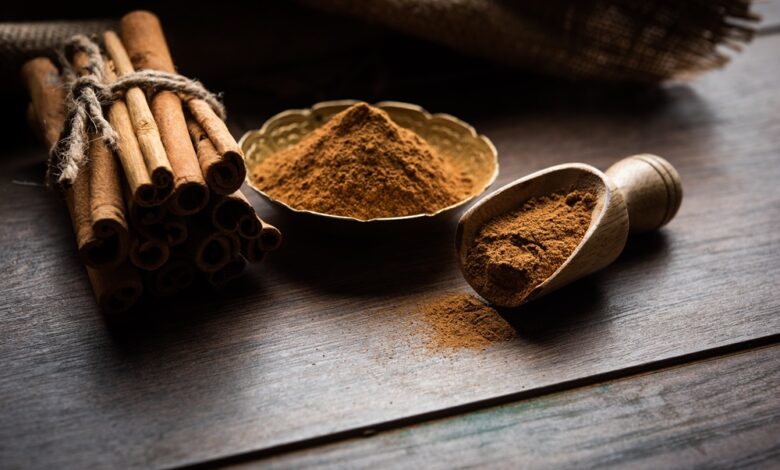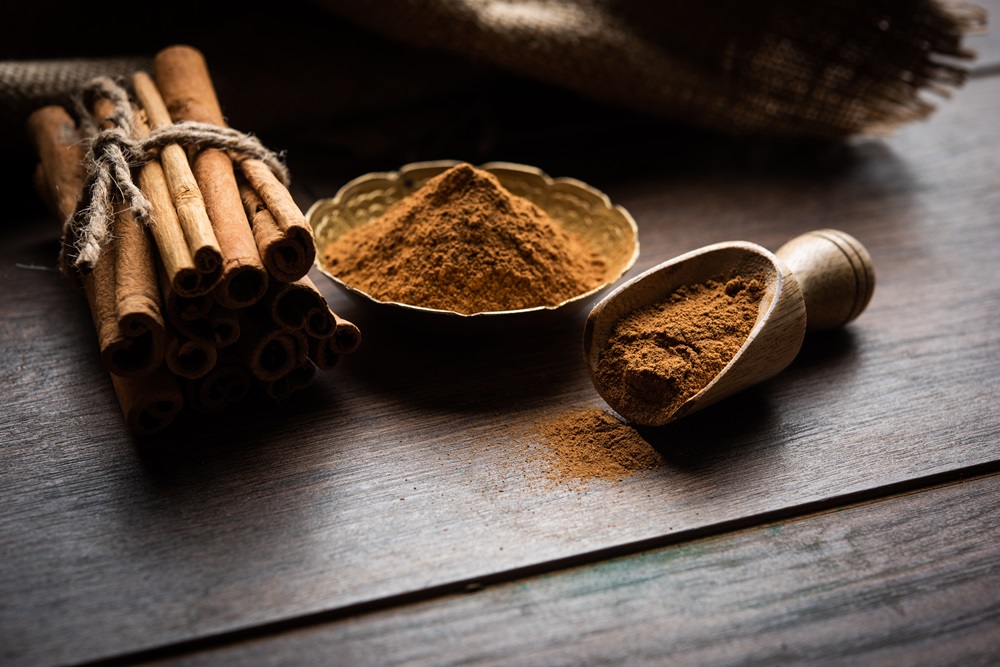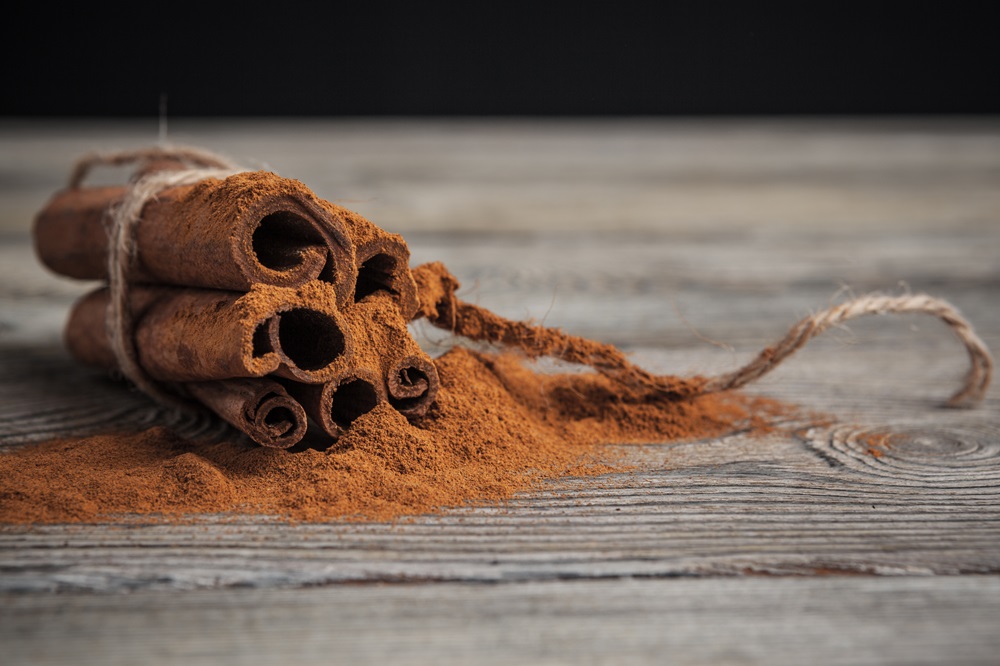10 Evidence-Based Health Benefits of Cinnamon

Table of Contents
What is Cinnamon?
Cinnamon isn’t just a tasty spice for your morning or holiday treats—it’s also packed with health benefits that have been recognized for centuries. Rich in antioxidants and other beneficial compounds, cinnamon has gained attention in modern science for its potential to improve various aspects of health.
For thousands of years, cinnamon has been cherished for its medicinal properties. Ancient civilizations, including those in Egypt and China, valued cinnamon not only for its flavor but also for its potential health-promoting effects. Traditional medicine systems, such as Ayurveda and Traditional Chinese Medicine, have long used cinnamon to treat ailments ranging from digestive issues to respiratory problems.

In recent years, scientific research has delved deeper into the health benefits of cinnamon, shedding light on its potential to support overall well-being. Studies have suggested that cinnamon may play a role in managing blood sugar levels, making it potentially beneficial for individuals with diabetes or those at risk of developing the condition. Additionally, research indicates that cinnamon may help protect against heart disease by improving lipid profiles and reducing inflammation in the body.
One of the key components of cinnamon is cinnamaldehyde, which is responsible for its characteristic flavor and aroma. Cinnamaldehyde has been shown to possess antioxidant and anti-inflammatory properties, which contribute to cinnamon’s potential health benefits. These properties may help combat oxidative stress and inflammation, which are implicated in the development of various chronic diseases.
People Also Read : Top 10 Health Benefits Of Apple | A Must Read Health Tip
Furthermore, cinnamon has been studied for its potential antimicrobial effects, which could help fight off infections and support immune function. Some research suggests that cinnamon may also aid in weight management by regulating appetite and metabolism.
Overall, while more research is needed to fully understand the mechanisms behind cinnamon’s health benefits, the existing evidence highlights its potential as a valuable addition to a healthy diet. Incorporating cinnamon into your meals and snacks may not only enhance flavor but also contribute to your overall health and well-being.
Health Benefits of Cinnamon
1. Contains powerful medicinal properties

Cinnamon comes from the bark of special trees called Cinnamomum. It’s been used for a super long time, even back to the days of Ancient Egypt when it was considered a fancy gift for kings!
Nowadays, you can find cinnamon in almost any grocery store, and it’s not as rare or expensive as it used to be. It’s used in all sorts of yummy foods and recipes.
There are two main kinds of cinnamon: Ceylon cinnamon, also known as “true” cinnamon, and Cassia cinnamon, which is what most people think of when they hear “cinnamon.”
Making cinnamon involves cutting the stems of cinnamon trees and getting the bark out. Then, they take out the woody parts and let it dry. After drying, it curls up into sticks, which we call cinnamon sticks. You can also grind these sticks to make cinnamon powder.
What makes cinnamon smell and taste so good is a part called cinnamaldehyde, which is packed with goodness. Scientists think this part is responsible for a lot of the healthy stuff cinnamon does for our bodies, like helping with health and metabolism.
People Also Read : 7 Health Benefits Of Sweet Melon
2.Loaded with antioxidants
Antioxidants are like superheroes for our bodies because they help protect us from damage caused by something called free radicals.
Cinnamon is packed with these superhero antioxidants, especially one type called polyphenols.
A study showed that taking cinnamon supplements could really boost the levels of antioxidants in your blood. Plus, it can lower levels of stuff that shows inflammation in your body, like C-reactive protein.
Cinnamon is such a superhero that it can even help keep our food fresh for longer because of its powerful antioxidant effects!
3. May have anti-inflammatory properties
Inflammation is like your body’s defense team—it helps fight infections and fix any damage to your tissues.
But sometimes, inflammation can stick around for too long and start causing trouble by attacking your body’s own tissues.
That’s where cinnamon can step in to help! Research shows that cinnamon and its antioxidants are really good at calming down inflammation, which can be super helpful when it’s acting up too much.
4. Could protect against heart disease
Cinnamon might just be a heart hero! Heart disease is a big deal—it’s the top reason people pass away all around the world.
Studies have found that taking around 3/4 of a teaspoon of cinnamon every day could help lower levels of bad stuff like triglycerides, total cholesterol, LDL (the not-so-good kind of cholesterol), and blood sugar in folks with metabolic issues.
Another look at lots of studies showed that cinnamon could also bring down levels of triglycerides and total cholesterol, both of which can up your chances of heart trouble.
And get this: if you keep up with cinnamon regularly for about 8 weeks, it could even help lower your blood pressure!
When you put all of these good things together, it seems like cinnamon might be a great addition to your routine to help keep your heart healthy and lower your risk of heart disease.

5. Could improve sensitivity to insulin
Insulin is like the conductor of your body’s energy orchestra—it helps regulate how your body uses energy and moves sugar from your blood into your cells where it’s needed.
But for some people, their bodies don’t respond well to insulin, which is called insulin resistance. This is a big deal because it’s linked to conditions like metabolic syndrome and type 2 diabetes.
Now, here’s where cinnamon comes into play: Some studies have hinted that cinnamon might be able to help with insulin resistance.
By making your cells more sensitive to insulin, cinnamon can help bring down your blood sugar levels and keep them in check. This could be a game-changer for folks struggling with insulin resistance and related health issues.
6. Helps lower blood sugar levels
Cinnamon isn’t just tasty—it’s also known for its ability to help lower blood sugar levels.
Besides helping with insulin resistance, cinnamon has a few other tricks up its sleeve for lowering blood sugar.
First off, it can slow down how much sugar enters your bloodstream after you eat. It does this by messing with certain digestive enzymes, which slows down how fast your body breaks down carbs in your belly.
Secondly, there’s a special compound in cinnamon that acts a bit like insulin, helping your cells take in sugar more easily.
Lots of studies on people have shown that cinnamon can really make a difference. It can bring down your fasting blood sugar levels and improve something called hemoglobin A1c, which tells us how well your blood sugar’s been doing over time.
To get these benefits, you usually need about half a to two teaspoons of cinnamon a day—sounds like a yummy way to help keep your blood sugar in check!
7. May have beneficial effects on neurodegenerative diseases
Neurodegenerative diseases are a big deal—they’re all about nerve cells losing their structure or function over time.
Alzheimer’s and Parkinson’s disease are two of the most well-known types of these diseases.
Now, here’s where cinnamon might come in handy: Some compounds in cinnamon seem to stop the buildup of a protein called tau in the brain, which is a big deal in Alzheimer’s disease.
In a study back in 2014, mice with Parkinson’s disease showed some promising results with cinnamon. It helped protect their nerve cells, balanced out levels of important brain chemicals, and even made their movements better.
But, we’ve got to be cautious here. While these findings are exciting, we still need to do more research to see if cinnamon could have similar effects in humans.
8. Cinnamon may protect against cancer
Cinnamon has caught the attention of scientists for its possible role in fighting cancer.
Most of the research so far has been done in test tubes and animals. These studies suggest that extracts from cinnamon might help protect against cancer by slowing down the growth of cancer cells and preventing the formation of blood vessels in tumors. It also seems to be able to kill cancer cells.
For example, one study done on mice with ovarian cancer found that a compound in cinnamon called cinnamaldehyde could stop certain proteins that help cancer grow from working.
Similar results were seen in test tube experiments, where cinnamaldehyde was shown to slow down the growth and spread of ovarian cancer cells.
While these findings are promising, we still need more research to see if cinnamon could have similar effects in humans.
9. May prevent bacterial and fungal infections
Cinnamaldehyde, a key ingredient in cinnamon, seems to have some promising effects against different types of infections.
In lab studies, cinnamon oil showed potential for killing certain fungi that can lead to respiratory infections.
It’s also been found to slow down the growth of certain bacteria like Listeria and Salmonella, which are known troublemakers when it comes to food safety.
On top of that, cinnamon’s antimicrobial properties might even help keep our teeth healthy by preventing decay and freshening up our breath.
But here’s the thing: most of these findings are from experiments done in test tubes, so we’re not totally sure how they’d work in real human bodies. We’ll need more research to see if cinnamon could really help fight off infections in people.
10. May have anti-viral properties
There’s some intriguing research suggesting that cinnamon might have the power to shield us from certain viruses.
For instance, cinnamon taken from Cassia varieties might have some benefits against HIV-1, which is the most widespread strain of HIV in people.
Other studies hint that cinnamon could also offer protection against other viruses, like the flu and Dengue fever, a viral illness spread by mosquitoes.
But, as exciting as these findings are, we still need more human trials to really nail down whether cinnamon could truly help fend off these viruses.
Conclusion
Cinnamon is a versatile spice that is associated with a long list of health benefits.
Thanks to the many beneficial compounds it contains, it may help lower blood sugar levels, reduce heart disease risk factors, and reduce inflammation.
For best results, be sure to opt for Ceylon cinnamon or stick to small doses if you’re using the Cassia variety.
Facebook | Instagram | Linkedln| Youtube | Get Direction To Our Office



